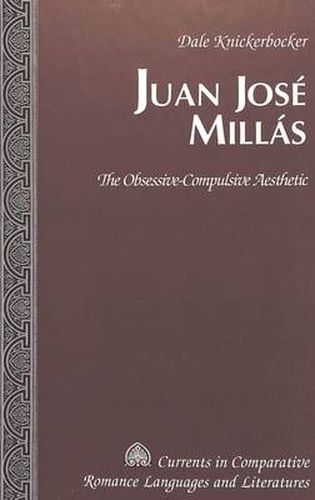Readings Newsletter
Become a Readings Member to make your shopping experience even easier.
Sign in or sign up for free!
You’re not far away from qualifying for FREE standard shipping within Australia
You’ve qualified for FREE standard shipping within Australia
The cart is loading…






The five novels written by Juan Jose Millas between 1988 and 1998 (El desorden de tu nombre; La soledad era esto, Volver a casa; Tonto, muerto, bastardo e invisible; and El orden alfabetico) display an increasing preoccupation with a limited number of themes, principally identity and social criticism. They also demonstrate the constant reiteration of a specific group of motifs, an increasing use of metafictional devices, and the use of bizarre or mentally disturbed protagonists. Millas presents writing as the compulsive expression of obsessive thought. This book explains Millas’s literary signs as corresponding to the clinical symptoms of obsessive-compulsive disorder. Using Fredric Jameson’s concept of the political unconscious, the obsessive-compulsive aesthetic is found to constitute Millas’s individual manifestation or working-through of an anxiety present in the collective unconscious of Spain and provoked by the rapid political, social, economic, and cultural changes experienced during those years.
$9.00 standard shipping within Australia
FREE standard shipping within Australia for orders over $100.00
Express & International shipping calculated at checkout
The five novels written by Juan Jose Millas between 1988 and 1998 (El desorden de tu nombre; La soledad era esto, Volver a casa; Tonto, muerto, bastardo e invisible; and El orden alfabetico) display an increasing preoccupation with a limited number of themes, principally identity and social criticism. They also demonstrate the constant reiteration of a specific group of motifs, an increasing use of metafictional devices, and the use of bizarre or mentally disturbed protagonists. Millas presents writing as the compulsive expression of obsessive thought. This book explains Millas’s literary signs as corresponding to the clinical symptoms of obsessive-compulsive disorder. Using Fredric Jameson’s concept of the political unconscious, the obsessive-compulsive aesthetic is found to constitute Millas’s individual manifestation or working-through of an anxiety present in the collective unconscious of Spain and provoked by the rapid political, social, economic, and cultural changes experienced during those years.